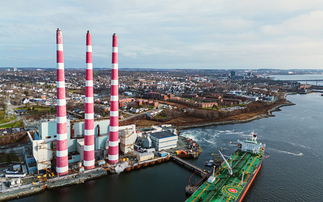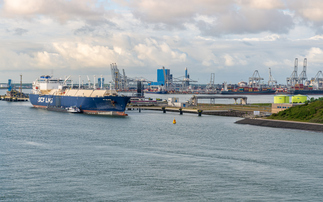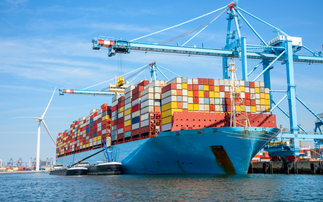Credit: iStock
Latest Annual Disclosure Report by Sea Cargo Charter suggests industry is badly off track to meet international climate goals
The shipping industry must take "urgent action" if it is to meet ambitious new climate targets set by the International Maritime Organisation (IMO), a new report has warned.
Data published today by the Sea Cargo Charter (SCC) - a global transparency initiative developed by the Global Maritime Forum - reveals the sector fell short of minimum international climate goals set by the IMO by an average of 17 per cent in 2023.
According to SCC, the shortfall is an equivalent to 165 million metric tonnes of CO2 equivalent (CO2e). The report warned signatories to the charter - which represents 20 per cent of global bulk cargo transport - are on average 22 per cent misaligned with IMO targets.
Currently, dry bulk, general cargo, and tankers account for around 400 million tonnes of CO2 emissions according to the United Nations 2023 review of maritime transport. And with global trade predicted to quadruple by 2050, the report warns emissions "will skyrocket" without urgent action.
The SCC said that for the first time this year signatories to the charter chose to voluntarily report against much stricter criteria, including the IMO's revised GHG Strategy which was introduced in July 2023 and set ambitious net zero emissions targets for 2050, with interim checkpoints in 2030 and 2040.
Reporting has also been expanded to include "well-to-wake" emissions, which measure emissions from the extraction of oil to its end use by ships, which SCC said provides a more comprehensive picture of the industry's environmental impact.
Despite the misalignment with the IMO's revised emissions targets, the report highlighted some "positive trends" within the sector.
SCC said the number of signatories to the charter has grown to 37 in 2024, 35 of which are reporting this year, which it hailed as a "significant increase" from 2022. It said expansion of the reporting initiative underscored a growing commitment to sustainability and transparency across the industry.
"The Sea Cargo Charter's expanding coverage of reporting is a testament to its commitment to transparency and accountability, setting a new standard for environmental reporting in the shipping sector," said Sea Cargo Charter chair Rasmus Bach Nielsen, who is also global head of fuel decarbonisation at commodities giant Trafigura. "As the Charter continues to attract new members and shape market practices, it underscores the importance of integrating climate considerations into business decisions.
"These efforts not only enhance emissions transparency but also propel the maritime industry towards a more sustainable future, at a time when action is needed more urgently than ever before."
The report highlighted how challenges in meeting the IMO's targets included the need to adopt longer journey times in response to geopolitical disruptions, changing operational parameters in ports, and the upfront costs associated with fuel-saving retrofit programs.
However, it also detailed how there are steps companies can take to accelerate decarbonisation efforts through vessel speed, cargo and routing optimisation, optimised ballast ratios, as well as investment in innovative new green technologies and fuels.
From next year, SCC confirmed shipowners and not just charterers will also be able to take part in the report which it said should further enhance transparency across the entire shipping value chain.
Overall, SCC said this year's report "paints a picture of an industry aware of the climate challenge and actively seeking solutions. Increased transparency, collaboration between charterers and shipowners, and alignment with the IMO's revised strategy are all positive steps in the right direction.
"The shipping industry has a long way to go, but with continued transparency, commitment, and innovation, it can navigate a more sustainable future."








